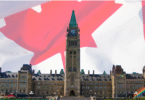Canada’s immigration system strongly supports family reunification. The government understands that families help newcomers adjust, settle, and succeed in Canadian life. By allowing permanent residents and citizens to bring their loved ones, Canada promotes social stability, stronger communities, and long-term economic growth.
Family sponsorship is an important part of Canada’s immigration system. It lets Canadian citizens and permanent residents bring certain family members to live with them in Canada as permanent residents. This helps people feel happier and more supported, and it also makes Canadian communities stronger.
This article provides a clear, step-by-step guide for those seeking to reunite with family members in Canada through legal sponsorship.
What is Family Sponsorship?
Family sponsorship is a way for Canadian citizens and permanent residents to bring close family members to live with them in Canada. It allows them to sponsor their loved ones for permanent residence. This program helps families stay together and supports immigrants as they settle and build a life in Canada.
To sponsor a family member, you must meet the following conditions:
- Be at least 18 years old
- Be a Canadian citizen, a permanent resident, or a person registered under the Canadian Indian Act
- Reside in Canada, or plan to return once the sponsored family member arrives (if currently abroad)
- Meet all financial and legal obligations under the sponsorship agreement
- Not be in default of any previous sponsorship, court-ordered support, or immigration loan
Legal Responsibilities of a Sponsor
Sponsors must sign a legal agreement with the Government of Canada. This agreement shows they promise to support the person they are sponsoring with money and basic needs. It also means the sponsored person cannot depend on government assistance. This promise stays in place even if the sponsor and the person break up or get divorced.
As a sponsor, you must show that you can provide the basic needs of the person you are sponsoring. This includes food, clothing, a place to live, and any healthcare not covered by public insurance. Usually, you don’t need to meet a specific income level when sponsoring a spouse or dependent child. But you do need to meet income requirements if you are sponsoring parents, grandparents, or other eligible family members.
Who Can You Sponsor
The Family Sponsorship Program lets Canadian citizens and permanent residents sponsor certain family members to become permanent residents. Each type of family member has its own rules, requirements, and documents needed. Knowing who you can sponsor is the first step to making a successful application.
Spouse, Common-Law or Conjugal Partner
You can sponsor your spouse, common-law partner, or conjugal partner if you can prove a genuine and legally recognized relationship.
- Spouse: You are legally married to your partner. If the marriage took place outside Canada, it must be legally valid both in the country where it occurred and under Canadian law.
- Common-law partner: You have lived with your partner in a conjugal relationship for at least 12 consecutive months.
- Conjugal partner: You are in a committed relationship for at least one year but were unable to live together or marry due to legal or immigration barriers (e.g., persecution or same-sex laws in the partner’s country).
You must prove the authenticity of the relationship through documentation, communication history, shared responsibilities, and joint financial or legal ties.
Dependent Children
You may sponsor your biological or adopted children, as well as those of your spouse or partner, if they meet the government’s definition of a dependent.
To qualify, the child must:
- Be under 22 years of age
- Not be married or in a common-law relationship
Children over 22 may still qualify if they are unable to support themselves financially due to a physical or mental condition and have depended on their parents for financial support since before turning 22.
Parents and Grandparents
Sponsoring parents or grandparents involved additional requirements and are subject to annual intake limits.
- You must meet minimum income thresholds for the past three tax years.
- You must submit an Interest to Sponsor form and wait for an invitation to apply, due to the limited number of applications accepted each year.
- You must sign a 20-year undertaking to provide financial support and repay any social assistance received by the sponsored individuals.
Eligibility Criteria for Sponsors
To sponsor a family member through Canada’s Family Sponsorship Program, you must meet certain rules set by Immigration, Refugees and Citizenship Canada (IRCC). These rules make sure you can handle the legal and financial duties that come with being a sponsor.
Age and Immigration Status
You must be at least 18 years old to sponsor a relative. In addition, you must be one of the following:
- A Canadian citizen,
- A permanent resident of Canada, or
- A person registered under the Canadian Indian Act.
If you are a Canadian citizen living outside Canada, you must show that you plan to return to Canada when the person you’re sponsoring becomes a permanent resident. If you are a permanent resident, you must be living in Canada when you apply and stay in Canada until a decision is made.
Proof of Income (Especially for Parents and Grandparents)
In most cases, you don’t need to meet a minimum income to sponsor a spouse, partner, or dependent child. But you do need to meet income requirements if you are sponsoring parents, grandparents, or some other relatives.
To sponsor these family members, you must meet the Minimum Necessary Income (MNI) based on your family size, as set by IRCC. You need to show proof of your income for the last three years using Notices of Assessment from the Canada Revenue Agency (CRA).
Your spouse or common-law partner can co-sign the application and combine their income with yours to meet the required amount. If you don’t meet the income requirement, your sponsorship application will be refused.
No Criminal History or Defaulted Sponsorships
You cannot sponsor a relative if you:
- Are currently in prison or have been convicted of a serious criminal offence, especially one involving violence or a sexual nature
- Have defaulted on a previous sponsorship undertaking
- Have outstanding immigration loans or court-ordered family support payments
- Have declared bankruptcy and not been discharged
Residency in Canada (or Intent to Return if Living Abroad)
If you are a permanent resident, you must be living in Canada to apply for sponsorship. If you are a Canadian citizen living outside Canada, you can apply only if you plan to return to Canada when your sponsored family member becomes a permanent resident.
In both cases, IRCC will check your plans to make sure your sponsored family member will live with you in Canada and not stay behind. You may need to provide proof, such as a written statement, job offers, housing plans, or other documents that show you are serious about returning and living in Canada together.
Sponsorship Process and Application Steps
Sponsoring a family member to become a permanent resident of Canada involves several steps, each with clear rules. Following these steps carefully can help you avoid mistakes, delays, or rejection. Here is a simple outline of the main steps in the family sponsorship process.
Confirm Eligibility and Relationship
Before applying, verify that both you, the sponsor, and the person you wish to sponsor meet all eligibility requirements.
- Ensure you are eligible to act as a sponsor under Canadian immigration law.
- Confirm that your relationship with the sponsored individual falls under one of the approved categories (e.g., spouse, child, parent).
- Gather sufficient evidence to prove the genuineness and legal recognition of the relationship.
Gather Required Documents
Documentation is central to a complete and accurate application. You must prepare two sets of documents:
- Sponsor documents, such as proof of Canadian status, tax records, and signed undertakings
- Sponsored person’s documents, including identity documents, relationship evidence, and country-specific requirements
Use the application guide from Immigration, Refugees and Citizenship Canada (IRCC) to find out which documents you need. Make sure all forms are filled out fully and honestly.
Submit Sponsorship and Permanent Residence Applications Together
You must submit both the sponsorship application and the permanent residence application at the same time. These are processed in two stages:
- IRCC first assesses your eligibility as a sponsor.
- If approved, they then review the application of the sponsored person for permanent residence.
Use the appropriate application package from IRCC’s website based on the type of relative you are sponsoring and whether the sponsorship is inland or outland.
Pay the Required Fees
You must pay all mandatory fees online before or during the submission of your application. These fees may include:
- Sponsorship fee
- Processing fee for the sponsored person
- Right of permanent residence fee
- Biometrics fee (if applicable)
Retain proof of payment and include it with your application package. Fee amounts vary depending on the type and number of people being sponsored.
Wait for Application Processing and Decision
After you submit your application, it goes into a processing queue. How long it takes depends on the type of sponsorship, where the applicant lives, and how complex the case is. You can check estimated processing times on IRCC’s official website.
During this period, you may be asked to provide additional documents or attend interviews. Respond promptly to all requests to avoid delays.
Medical, Criminal, and Background Checks for the Sponsored Person
As part of the permanent residence assessment, the sponsored individual must:
- Undergo a medical examination by a panel physician approved by IRCC
- Submit police certificates from all countries where they have lived for six months or more since age 18
- Pass security and background checks to confirm admissibility to Canada
These checks are mandatory and must be completed within specified timelines. Failure to comply can result in refusal or delays.
Frequently Asked Questions
Can I sponsor a family member if I live outside Canada?
Yes, but only if you are a Canadian citizen. You must demonstrate that you intend to return to Canada when the sponsored person becomes a permanent resident.
Is there a minimum income requirement for all types of sponsorship?
No. You do not need to meet a minimum income requirement when sponsoring a spouse, partner, or dependent child. However, you must meet the Minimum Necessary Income (MNI) if sponsoring parents, grandparents, or certain other relatives.
Can I sponsor my sibling to come to Canada?
Generally, you cannot sponsor a sibling unless they qualify under a special case, such as being orphaned, under 18, and not married or in a common-law relationship.
Can my spouse or partner work while waiting for their sponsorship to be approved?
Yes, if the application is submitted from within Canada (inland sponsorship), your spouse or partner may apply for an open work permit.
Conclusion
In summary, you must first make sure you qualify as a sponsor and that the person you want to sponsor is an eligible family member. To succeed, you need to submit the right documents on time and follow all the rules. If you’re sponsoring parents, grandparents, or other relatives, meeting the income requirements and putting together a full application can be more challenging.






